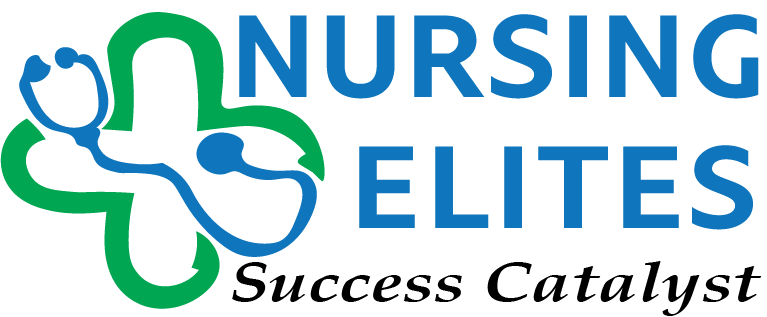Statistics by the Department of Education show the rate of dropout in nursing school is above 50% in some nursing programs. The report further indicates that most nursing students give up during the first semester of nursing school due to the demanding nature of nursing programs. A comprehensive understanding of what to study before nursing school can help students cope better with the demands of various semester nursing programs. Our nursing school exam experts explain the prerequisite topics and specific concepts to review before starting nursing school for easier adjustment.
The Prerequisite Topics to Review Before Nursing School
The best way of knowing what to study before nursing school is by taking the prerequisite topics required by institutions. Understanding these subjects prepares students for more advanced healthcare coursework in nursing school. The prerequisite courses students take may vary, depending on their educational background and institutional requirements. The following are the main prerequisite topics to polish up on before nursing school starts:
- Biology: A good understanding of the human body is essential, especially about the respiratory system, body mechanics, and human development stages.
- Chemistry: Knowledge of chemical cycles in the body, such as oxygen transportation to the cells and lungs, is vital to nurses. This subject also covers the different drugs doctors administer to patients.
- Anatomy and physiology: Nursing students must grasp concepts related to organ structure and development. These include the lungs, heart, and systems like the musculoskeletal and nervous systems.
- Math: A strong understanding of statistics, fractions, conversions, decimals, and measurements helps in drug administration.
- English composition: Showing a good command of written English is essential for communicating with doctors and patients in healthcare.
- Nutrition: Nursing students should know the fundamentals of healthy living, including healthy foods for patients and how to prevent lifestyle diseases such as obesity, diabetes, and heart attacks.
- Psychology: This course teaches nurses how to develop patient relationships and effective ways to get them to open up about their specific needs.
Students wondering what to study before nursing school should brush up on the basics of these topics. Other helpful topics to know in healthcare today include time management skills, computer skills, and ethics and law.
Specific Processes and Concepts to Study Before Nursing School
Outside the academic courses, students must know the concepts and processes covered in nursing school. Here’s a comprehensive analysis of what to know before nursing school on each process and idea:
Cardiovascular System
Concepts of cardiovascular pop up frequently in practical and theoretical sessions in nursing school. Understanding blood flow and the pathways from the heart to the lungs helps determine blood pressure and valve functions. Knowledge of cardiac physiology or anatomy is also instrumental in assessing stroke volume, heart failure, and other conditions such as ischemia and infarction.
Pulmonary System
The pulmonary system is another concept covered at different stages of nursing school, from the first to the final year. Prospective students looking to enroll in a nursing program should know respiratory physiology relating to gas exchange (O2 and CO2) in the human body.
A firm understanding of the oxygenation process, including oxygen consumption and delivery, can also help students detect the cause of respiratory failure in patients with asthma, COPD, or other respiratory disorders.
what to study before nursing school: Renal System
The kidneys are major organs in the human body that help balance equilibrium or maintain homeostasis in physiological processes. Thus, knowing the dynamics of the renal system, such as the urinary tract, bladder, uterus, and urethra, can help determine fluid balance and waste elimination efficiency.
Furthermore, knowledge of the renal system helps trace electrolytes like sodium, phosphate, and magnesium. It helps determine their levels and contribution to muscle development, blood chemistry, and tissue perfusion.
Endocrine System and Feedback Loops
Reviewing the endocrine system and its functions helps students improve overall patient care. Students need to learn the roles of crucial hormones like the testosterone growth hormone, progesterone, antidiuretic hormone, and follicle-stimulating hormone.
On top of that, nursing students should know the inner workings of feedback loops and how they maintain homeostasis. The essential aspect to know about feedback loops is negative feedback loops trigger the production decrease of excess hormones, while positive feedback triggers the release of hormones.
Dimensional Analysis
Dimensional analysis is the final concept on the list of what to study before nursing school. This topic teaches students how to express and calculate physical quantities. The knowledge gained from this area helps convert units such as mL to L and vice versa, which is useful in figuring out drug dosages during medicine administration and other clinical calculations.
What to Study Before Nursing School: The Final Word
Understanding what to study before nursing school familiarizes students with the common concepts they may encounter in nursing programs. To successfully grasp these topics and processes, students should break up the contents into smaller chunks, write down the fundamental concepts, and create study schedules. Our nursing exam help experts can take students through what to study before nursing school to help them excel and get a license to practice.




